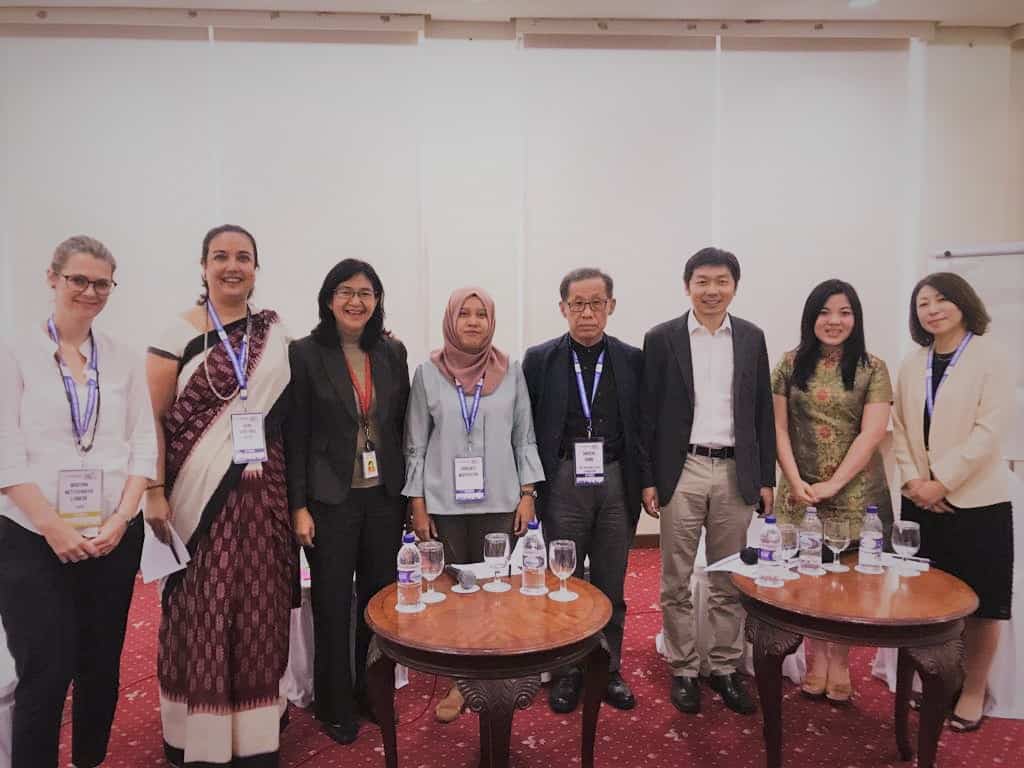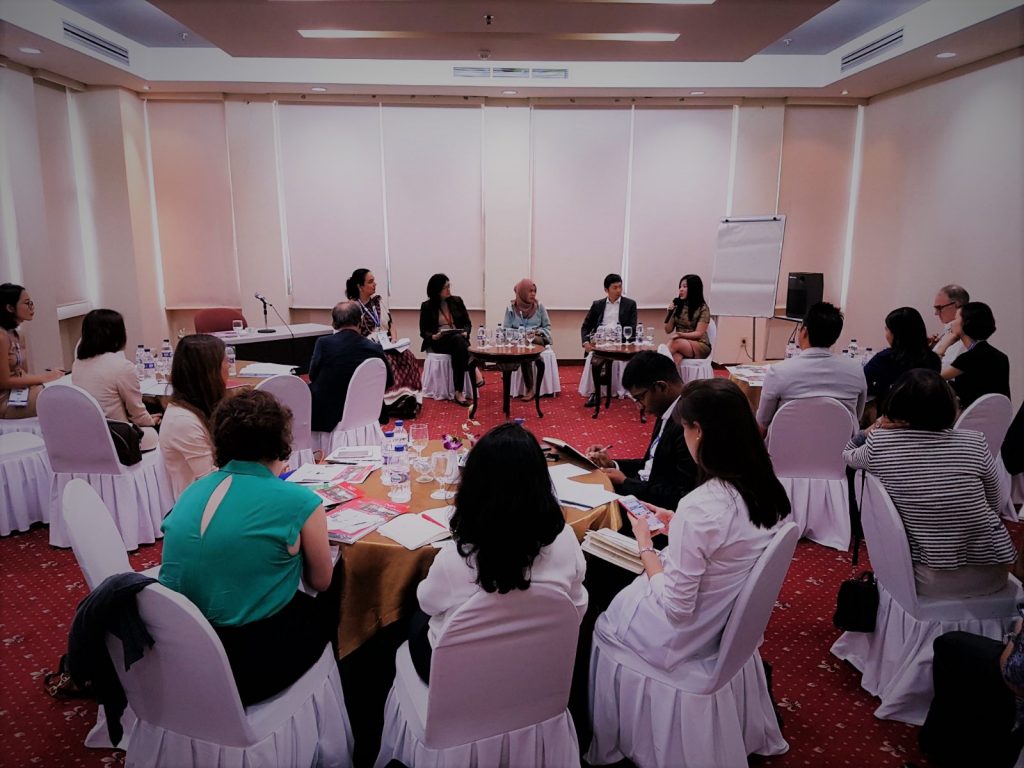Financial illiteracy, lack of support network, and low uptake of Government-support trainings are one of the few financial hurdles for women entrepreneurs in Southeast Asia. To this end, one of the options which were raised was on incubation programs as an effective way to tackle business knowledge-related issues. AVPN, with the support of Sasakawa Peace Foundation organised a discussion and lunch in Jakarta, Indonesia in order to map out the reasons behind gender discrepancies, and identify the next steps to address these gaps.
Moderated by AVPN CEO, Naina Batra, the panelists at the recent Luncheon on Women Entrepreneurship in Jakarta shared their experiences from an Indonesian context, which was reflective of the findings from AVPN’s research in the ASEAN region. Speakers on this panel included:
- Larasati (Laras) Widyaputri, Owner & President Director of Ecodoe
- Ellen Nio, Country Manager for Investing in Women fund, Patamar Capital
- Romy Cahyadi, Executive Director of UnLtd Indonesia
- Chrisma Albandjar, Special Advisor to the Chief of Staff of the President of the Republic of Indonesia; and Advisory Board Member of YCAB
Lack of formal networks and communities
As a women entrepreneur, Laras shared her experience starting a new business. Laras related how she went to start-up scene events to forge her own connections and acquire market knowledge. It was not until she was later admitted to Singapore International Foundation’s YSE program that she started learning about the different kinds of capital sources and support programs available. Romy mentioned that there is a lack of good and well-known role models for female entrepreneurs in Indonesia, which Laras resonated with. Since her early start up days, Laras no longer has difficulty finding access to capital as she receives support and assistance from a business mentor.
On the other end, Patamar Capital found it difficult to gain access to a ready pool of SPOs to leverage on their Investing in Women fund. ”Cities outside of Java are not as up to speed as Jakarta,” says Ellen Nio, “This made location a constraint.” It wasn’t until Patamar reached out to partner companies active in the local cities outside of Java to refer enterprises that they received 150 registrations for their fund.
Cultural expectations of women entrepreneurs in Indonesia
Another pertinent issue raised was the family expectations of women entrepreneurs, either through parents or, if they are married, husbands. “It was harder to convince her parents than investors in the market,” Laras commented, tongue-in-cheek. The general consensus was that gender stereotypes were still entrenched in society, and women were perceived as “less able than men.” Traits generally expected of women such as being soft-spoken is a trait that was noted as ‘not leadership-like’ in venture capital standards. Chrisma added that it took a policy amendment to allow wives to take loans as an individual; Previously, they had to receive their husband’s permission in order to be eligible for one.
Incubation and acceleration as mentorship programs
The discussion then went on to say that women’s lack of access to finance as the singular source of problem for women entrepreneurs, is inaccurate. Instead, the most pressing issue is mentorship – provided through incubation and acceleration programs. To address this, Patamar’s 150 registered enterprises for their Investing in Women fund will also go through their acceleration program to become scalable and investible. The issue that Ellen and Romy brought forward was, instead of a lack of women funds, it is the small pipeline of female-owned and female-beneficiary businesses that social investors can invest in.
Wrapping up the discussion panel, Naina indicated that AVPN would like to keep the conversation on how social investors and resource providers can help support the ecosystem for women entrepreneurs to thrive in Asia going.
To learn more about AVPN’s study on effective incubation program models and how it can help businesses grow, read our Effective Social Incubation report here. To read about AVPN’s study on women entrepreneurs and financing and technical support options available in ASEAN member states, read our Towards Inclusive and Sustainable Growth in the ASEAN Economic Community report here.



















